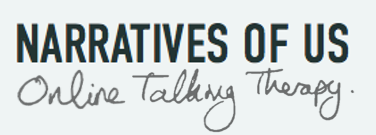You might be living with the effects of a label… such as anxiety, depression, trauma, stress, grief, burnout or disorder.
Below are some examples of how people describe, in their own words, the troubling times or big storms of life. If some of these examples resonate with you, then Narratives of Us might be a good fit.
Carl Kleiner
There’s a tidal wave of uncertainty out of the blue, and I want solid ground.
I’ve been given a label but it seems far away from my unique experience. I mean… there’s anxiety, there’s anxiety and there’s anxiety, right?
The world is pressing down on me, there’s sadness and sorrow all the time.
I have reason to be really cross and in moments I feel like shouting really loudly.
Something difficult to describe happened to me… it’s after my attention.
Even in a place of lots of people, lonliness is there.
I get angsty, the world seems terrible and even unsafe… little things play on my mind.
I have the grey tickles of worry and stress… the drepressing black curtain of really low mood.
Social media is giving me more than just FOMO and steeling my attention.
Someone really important to me is no longer in my life how they were and I miss who I was in their eyes.
I’m in a dillemah… my heart says one thing but my culture says the opposite, what do I do?
There’s a hole in my bucket of contentment… no matter what I fill it with.
I’m heartbroken. My partner and I are stuck in a rut. The spark is gone.
The rug has been pulled right from under my feet… and it’s not okay by me actually.
I’m beat. I feel beaten down on. I don’t have the energy.
I don’t know where I fit in, where I belong, what to do with my life.
A Clinical Psychologists is trained in a range of therapies in order to tailor sessions to fit you and your situation. Arguably one of the most close fitting of therapies, and one which therefore clicks with my values, is Narrative Therapy.
Narrative Therapy: Story Telling Rights
1. Everyone has the right to define their experiences and problems in their own words and terms.
2. Everyone has the right to have their life understood in the context of what they have been through and in the context of their relationships with others.
3. Everyone has the right to invite others who are important to them to be involved in the process of reclaiming their life from the effects of hardship.
4. Everyone has the right not to have problems caused by trauma and injustice located inside them, internally, as if there were some deficit in them. The person is not the problem; the problem is the problem.
5. Everyone has the right to have their responses to hard times acknowledged. No one is a passive recipient of hardship. People always respond. People always protest injustice.
6. Everyone has the right to have their skills and knowledge of survival respected, honored, and acknowledged.
7. Everyone has the right to know and experience that what they have learned through hard times can make a contribution to the lives of others in similar situations.
Jeff Koons
Is narrative therapy a good fit for me?
Many people dislike traditional talking therapy for some common reasons… jargon, labels, silence, power and deep diving back to early childhood without clear reasons why. Awks.
Narrative therapy is different. The aims are tailored to you. What is important to you, is always at the centre of the conversation. It’s the idea that you are the author of your stories: the problem ones and the exception to the problem ones. In sessions we hope to:
Define the problem, issue or concern in your terms using your words, expressions and language - in order for it to be close to your personal lived experience. Not using psychological buzzwords and not using a short-hand label out of a manual.
Recognise your responses to hard times (even mini initiatives), which might have been under unappreciated, knowing that the person is the person, the person is not the problem, the problem is the problem.
Highlight what is important to you, what you hold in high regard, what you care most about and what in a sense you value the most - as a means to know how to go forward. It’s my job to listen out for hidden hopes and intentions.
Be assured that this approach has a solid evidence and research base behind it.






